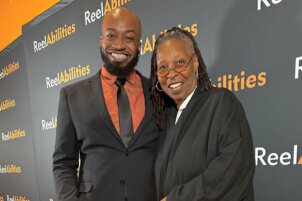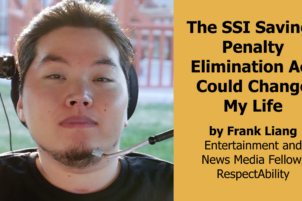51% of Voters Want to Vote By Mail
Washington, D.C., May 13 – According to a new poll conducted by Democracy Corps on behalf of the Center for Voter Information, 81 percent of registered voters (84 percent of voters with disabilities) say they favor allowing people who use Supplemental Nutrition Assistance Program (SNAP), to be able to order and pay for groceries and delivery online, so they don’t have to go into stores.
But 15 states have yet to ensure their high-risk residents can receive online grocery deliveries through SNAP (also known as food stamps), leading to millions of people with and without disabilities risking exposure to COVID-19 or going hungry. An additional 13 states have applied to the USDA and bureaucrats in Washington, D.C. so that people with disabilities can use their food stamps to deliver groceries. However, they are in wait mode – living in fear and in need of safe access to food.
“Ensuring people can use SNAP to order food online to receive via delivery does not cost the government any more money,” said RespectAbility President Jennifer Laszlo Mizrahi. “It is heartening to see that this polling data showing that 81 percent of voters support this initiative is nonpartisan, with both Democrats and Republicans in support.”
Safe Voting Access
With the coronavirus spreading uncontrolled in parts of America, a majority of registered voters want to vote at home by mail, up from 47 to 51 percent. Fifty-seven percent of people with disabilities are in favor of voting from home. In addition, two-thirds of Americans are comfortable with reforms that allow no fault absentee voting, with everyone being automatically mailed an absentee ballot, and everybody voting by absentee ballot.
One issue with voting by mail is that it may leave out voters who are blind or who have low vision. Paper-only ballots violates the right for people who are blind or have low vision to vote privately, as they would need to enlist the help of a sighted person to read and fill out the ballot for them.
“Voting from home may be necessary during this pandemic,” said Ollie Cantos, Board Member of RespectAbility, who is blind and whose blind triplet sons currently are recovering from COVID-19. “If ballots are to be cast via mail, we also need to ensure the equal availability of electronic ballots, which historically have been used by members of the military, for all people who need them. Provided that such ballots are accessible, voters who are blind or who have low vision can utilize screen readers or screen magnification to read the text of an electronic ballot out loud to them so they can vote in private.”
The Disability Community
This poll found that 18 percent of voters identify as having a disability, including a physical, cognitive, sensory, mental health, chronic pain or another condition that is a barrier to everyday living.
Democracy Corps conducted this 2,000-sample web survey, April 27-May 3, on behalf of the nonprofit and nonpartisan Center for Voter Information (CVI) in 16 battleground states, the second of a series of tracking surveys on the pandemic.







